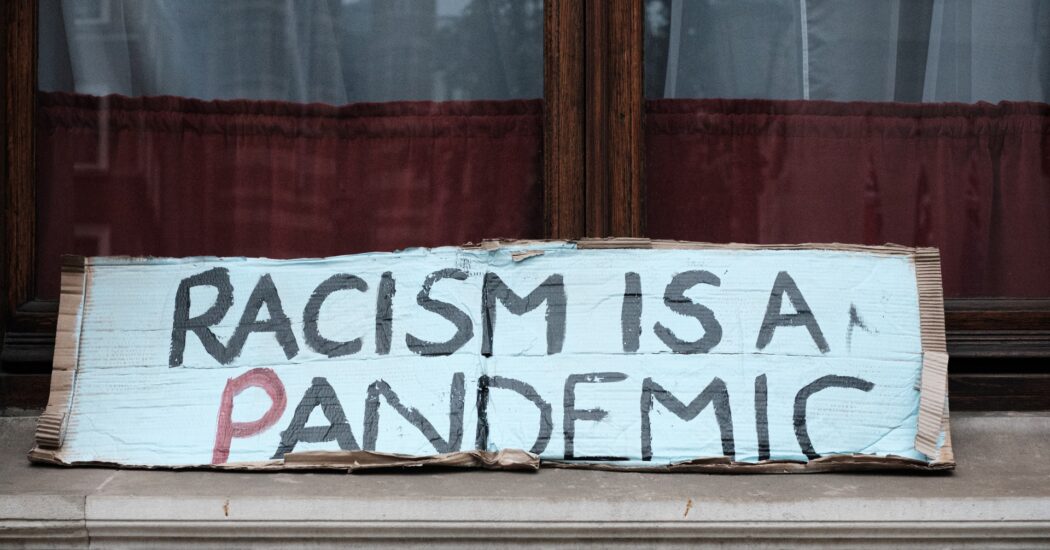We didn’t land on Plymouth Rock, the rock was landed on us
Malcolm X, The ballot or the bullet
KJIPUKTUK (Halifax) – This quote of the late Malcolm X can be applied to the stigma around mental health as it affects the African Canadian and African American community.
The generalizations and falsehoods surrounding mental illness in African Canadian communities are coming from others and cause significant problems as a part of the pandemic of racism.

Any mental illness among African Canadians results from racism and intergenerational racism and the Atlantic slave trade. The negative stigma associated with mental health is based on viewing others as different and therefore less than or flawed.
European naturalist Carl Linnaeus introduced the concept and construct of race while classifying plants and animals in 1735. This entailed placing Africans at the bottom of the brain classification list. This started the dumb ass assumption that African people were inferior and ware somehow mentally flawed.
In general, the negative attitudes and misguided beliefs associated with mental illness are common in most parts of the world. But that doesn’t make them right. Any kind of stigma based on differences among ethnicities cause discrimination. This discrimination takes many forms, from insulting remarks to avoidance and sometimes physical violence.
Many have come to view those who they believe to have a mental illness as being unstable, dangerous, violent, not trustworthy, dishonest, of lower educational achievement, insensitive, ugly, out of control, weak in character, cursed, Godless, flawed, a threat or threatening, someone to be feared, self destructive, suicidal, restless, not able to learn, on illicit drugs and the list goes on. If these stigmatic views seem familiar, it is because all of them have been placed upon African People for 500 years.
Just like racist stigmas, I equally believe all stigma associated with mental illness is harmful and only serves to limit human potential.
These unkind generalizations and negative judgments generally come from ignorance, fear of the unknown and a gross lack of understanding. If you believe that you suffer from labeling, you are not alone.
The Canadian mental health system is flawed and adds to the stigma associated with mental illness, especially where it does not reach out to those needing care and or those who have dropped out of care.
Many persons that may feel they suffer from mental illness do not seek care, because of the continued stigma attached to mental illness and because of the snail’s pace of this so-called mental health system.
Equally, if you are a Person of Color, you might have a fear of receiving treatment from someone that is not familiar with your heritage, culture and lineage. This is why it is so important to see yourself included in the picture.
I truly believe if there were more political will to openly and honestly address the concerns and issues associated with mental illness, it would go far in addressing the associated problems, concerns, issues and indeed stigma, but, like race, it makes some dimwits uncomfortable. Oh well, suck it up buttercup!
Probably one of the most frequent failures in our so-called mental health system relates to a lack of priority given to mental health by the provincial and federal governments.
Resource allocation throughout the system certainly could be greatly improved. Another failure of the system is that one hand does not know what the other hand is doing and when they are doing it.
Because of this lack of accountability and responsibility by governments, blame must be assigned. Assigning blame allows others to escape blame. For example, blaming the provincial government lets the federal government off the hook.
We must expand programs and services in the community, particularly Afrocentric mental health services and mental health centres. Mental health services must also be extended into nursing homes and walk-in clinics.
Based on prolonged exposure to the effects of racism, intergenerational racism and poverty, I believe most African Canadians suffer from symptoms of post-traumatic stress disorder. This is part and parcel of the experiences of most in the African Canadian community.
Over the years and centuries many African Nova Scotian families have tried to cope with mental stresses by embracing family intervention methods such as dialogue, support, love, and community support, trying to produce positive change. The efforts put forth by families and communities must be recognized and appreciated.
From the 1960s on down many labels have been placed on African Nova Scotians who exhibited differing behaviors these labels include retarded, learning disabled, crazy, animalistic, etc.
One could honestly venture to say most mental health professionals in the province of Nova Scotia have little or no understanding of the lives, culture, heritage, lineage, and traditions of African Nova Scotians and therefore it is very difficult to benefit from their services, even if you have access to professional support, especially where the professional support might also be racist, and/or their great great grandparents might have owned your great great grandparent. And yes, there was slavery in Canada, duh!
Those forced to accept the labels of mental health professionals do so in the hope of having their treatment modify their behavior and to recover from mental health issues, concerns and problems in order to function so-called “normally.” But success is limited when one has no knowledge of or understanding of the African Canadian/Nova Scotian experience.
African Canadians and African Nova Scotians in poor neighborhoods have limited access to mental health services that reflect their culture and ethnicity, interests and their experience.
Although mental health professionals in the province of Nova Scotia are said to have extensive training, they lack culturally appropriate training.
There needs to be an increase in funding for mental health services that includes culturally sensitive programming and services.
Regulatory bodies that are responsible for the administration of mental health services in Canada and Nova Scotia must emphasize cultural understanding and sensitivity.
Cultural competency training programs for mental health professionals can help reduce stigma and eliminate much of the suspicion that most African Canadians have of mental health professionals and the mental health system. Such programs would increase awareness and provide culturally competent services that promotes inclusion
The need for African Nova Scotian mental health programs and services are always overlooked. There is a major gap in services to address the needs of African Canadians and Canada as a nation is lacking culturally sensitive mental health care that would benefit African people. Funding should be made available for Afrocentric mental health counseling.
It is illogical to expect anyone to act “normal” in an abnormal society. Oppression equals depression.
See also: Raymond Sheppard: Why we need Afrocentric counselling in Nova Scotia
Check out our new community calendar!
With a special thanks to our generous donors who make publication of the Nova Scotia Advocate possible.
Subscribe to the Nova Scotia Advocate weekly digest and never miss an article again. It’s free!



